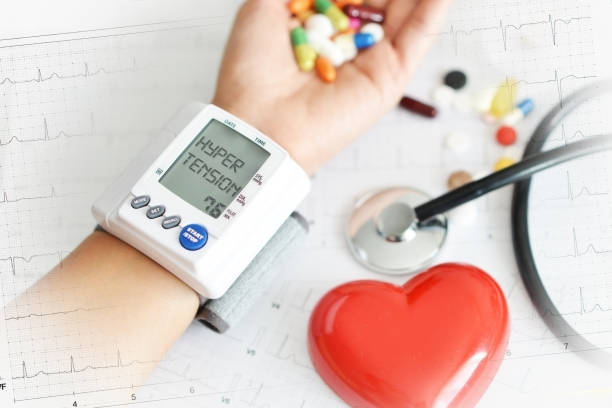Health Conditions
How To Monitor Metabolic Disorders
Are you worried about your metabolic health? Looking for a strategy to track and manage metabolic disorders? You have arrived to the correct location! In this article, we’ll go over how to monitor metabolic diseases and provide you practical recommendations for staying healthy.
Common Signs and Symptoms of Metabolic Disorders
Metabolic disorders are ailments that impair the body’s capacity to digest and absorb nutrients. These illnesses can appear in a variety of ways, and understanding their signs and symptoms is the first step toward appropriate monitoring and management.
Unexplained weight gain or decrease is a common symptom of metabolic disease. If you see big changes in your weight for no apparent cause, it could indicate that your metabolic system is not functioning properly. Other symptoms may include weariness, increased thirst or urination, recurring infections, and appetite abnormalities.
It’s important to remember that these symptoms might also indicate other health conditions, so contact with a healthcare professional for a comprehensive diagnosis. Regular monitoring and evaluation will assist in identifying any underlying metabolic abnormalities and directing you to the most effective treatment.

Importance of Monitoring Metabolic Disorders
Regular monitoring is essential for managing metabolic disorders because it helps you to follow your progress, identify potential complications, and make educated decisions about your treatment. By constantly monitoring your metabolic health, you can take proactive efforts to avoid future difficulties and preserve your best health.
Monitoring metabolic diseases is not only for people who have previously been diagnosed with a specific ailment. It is also critical for people who are at risk or have a family history of metabolic problems. Early detection and management can lead to better outcomes and fewer long-term consequences.
Tools and Tests for Monitoring Metabolic Disorders
Monitoring metabolic diseases entails using a variety of instruments and tests to evaluate different elements of your health. These tests provide crucial insights into how your body functions and assist your healthcare professional in determining the best course of action.
Blood testing are one of the key methods used to monitor metabolic diseases. These tests examine a variety of indicators, including blood glucose, cholesterol, and thyroid hormone levels. Regular blood tests can help identify abnormal results and serve as a baseline for tracking changes over time.
In addition to blood tests, physical examinations are required to diagnose metabolic illnesses. During these tests, your healthcare practitioner will evaluate your vital signs, calculate your body mass index (BMI), and perform a full health assessment. Physical exams may also include tests specific to your ailment, such as checking for peripheral neuropathy in diabetics.
Other diagnostic methods, such as imaging scans and specialised tests, may be required depending on the metabolic disease. These tests can provide precise information on organ function and assist in detecting potential issues.

Dietary and Lifestyle Changes for Managing Metabolic Disorders
While monitoring metabolic abnormalities is critical, it is also important to make the required dietary and lifestyle adjustments to properly manage these problems. A healthy lifestyle can greatly enhance metabolic health and lower the risk of problems.
Controlling metabolic illnesses like diabetes and cardiovascular disease requires diet. A balanced diet rich in fruits, vegetables, whole grains, lean meats, and healthy fats will lower blood sugar and cholesterol and improve health. A registered dietitian or nutritionist must help you create a food plan that meets your metabolic demands.
Regular exercise is another important aspect of controlling metabolic problems. Physical activity improves insulin sensitivity, aids with weight management, and lowers the risk of cardiovascular problems. Aim for at least 150 minutes of moderate-intensity aerobic activity or 75 minutes of vigorous-intensity activity each week, in addition to strength training activities.
Managing stress is also essential for sustaining good metabolic health. Chronic stress can disrupt your body’s hormonal balance and worsen metabolic issues. Incorporate stress-reduction practices into your daily routine, such as meditation, deep breathing exercises, yoga, or engaging in enjoyable and relaxing activities.
Monitoring Blood Glucose Levels for Diabetes
Monitoring blood glucose levels is an important part of diabetes management. Regular monitoring allows you to check your blood sugar levels and make any required changes to your treatment plan.
There are several ways to monitor blood glucose levels, ranging from basic fingerstick tests to continuous glucose monitoring systems. Fingerstick tests entail pricking your finger and using a glucose meter to measure your blood sugar levels. Continuous glucose monitoring systems, on the other hand, use a tiny sensor inserted beneath the skin to assess glucose levels throughout the day.
Your doctor will recommend blood glucose monitoring frequency and timing based on your needs and treatment plan. You must monitor your blood glucose levels and discuss them with your doctor at follow-up sessions.

Monitoring Cholesterol Levels for Cardiovascular Disorders
High cholesterol levels are a frequent metabolic issue that raises the risk of cardiovascular disease. Regular cholesterol testing is vital for assessing your cardiovascular health and making required lifestyle or medication changes.
A blood test is often used to measure cholesterol levels, which include total cholesterol, LDL (bad) cholesterol, HDL (good) cholesterol, and triglycerides. Based on your results, your doctor may suggest dietary modifications, exercise, or medication to help you manage your cholesterol levels.
Regular monitoring of cholesterol levels allows you to track your progress and make any changes to your treatment regimen. To ensure that your cholesterol levels are properly managed, you should follow your healthcare provider’s instructions and attend regular follow-up sessions.
Monitoring Thyroid Function for Thyroid Disorders
Thyroid diseases, such as hypothyroidism or hyperthyroidism, have a substantial impact on metabolic function. Monitoring thyroid function with blood testing is critical for accurately diagnosing and controlling these diseases.
Thyroid function tests assess the levels of thyroid-stimulating hormone (TSH), thyroxine (T4), and triiodothyronine (T3). Abnormal levels of these hormones may suggest an underactive or hyperactive thyroid.
Regular thyroid function testing helps your doctor to adjust medication dosages as needed and keep your thyroid hormone levels within the optimal range. It is crucial that you follow your doctor’s instructions for thyroid function testing frequency and plan regular follow-up appointments.

Monitoring Kidney Function for Metabolic Kidney Diseases
Metabolic kidney illnesses, such as diabetic nephropathy or polycystic kidney disease, necessitate ongoing monitoring to measure kidney function and identify potential problems.
Kidney function can be assessed using blood tests that measure creatinine, blood urea nitrogen (BUN), and estimated glomerular filtration rate (eGFR). These tests reveal important information about the health and efficiency of your kidneys.
Regular monitoring of kidney function enables your healthcare provider to notice any loss in kidney function early on and intervene to maintain renal health. It is critical to schedule regular follow-up sessions and follow any dietary or pharmaceutical advice made by your healthcare provider.
Conclusion
Monitoring my metabolic disorders is crucial for effectively managing these conditions and maintaining my optimal well-being. Regular check-ups, blood tests, physical examinations, and other diagnostic tools provide valuable information about my metabolic health and guide my treatment plan. In addition to medical interventions, making necessary dietary and lifestyle changes is essential for managing my metabolic disorders. Adopting a healthy diet, engaging in regular physical activity, and managing stress can significantly improve my metabolic health and reduce the risk of complications.
By taking proactive actions to monitor and control my metabolic health, I may improve my quality of life, lower my risk of problems, and preserve overall well-being. Regular monitoring, together with appropriate lifestyle changes and medicinal interventions, will enable me to manage my metabolic health and live a healthy, meaningful life. So, starting today, I’ll monitor my metabolic wellness and take control of my health!


